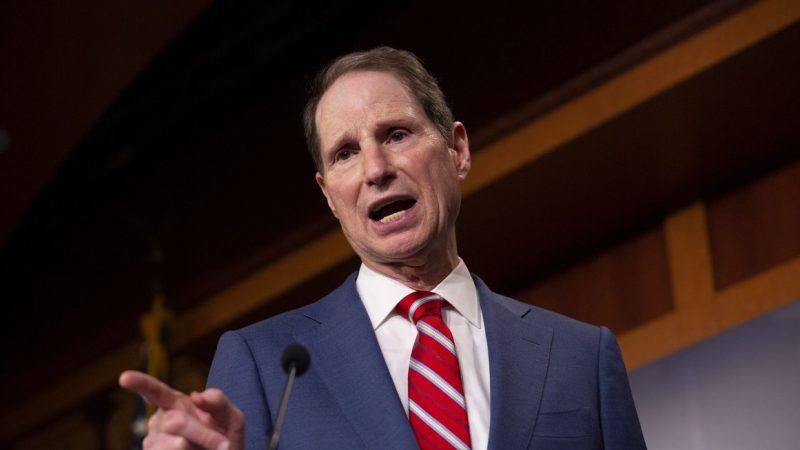Lawmakers Say the FBI's Problematic Carter Page Warrants Require Congressional Surveillance Reforms
A bipartisan coalition wants to restrain secret snooping and create more independent oversight of the secretive FISA Court.

A bipartisan group in Congress is attempting (again) to pass legislation that would restrict the National Security Agency from abusing the PATRIOT Act and the Foreign Intelligence Surveillance Amendment (FISA) Court in order to collect and access private records of Americans.
The Safeguarding Americans' Private Records Act would formally prohibit the bulk collection of Americans' phone records, which Edward Snowden exposed and the NSA has since quietly ended. Despite years of government officials defending the practice, the mass collection of all our phone and internet records has not been shown to assist the government in fighting terrorism.
The bill would also prohibit warrantless collection of geolocation information and it would forbid the NSA and other intelligence agencies from creating "secret" interpretations of surveillance laws, which is how the NSA used Section 215 of the PATRIOT Act to justify mass domestic data collection in a way that the Act's primary sponsor, Rep. Jim Sensenbrenner (R–Wis.), says he never intended.
The bill also seeks to address some of the institutional problems with the FISA Court, recently revealed by the Justice Department Office of the Inspector General's (OIG) review of the warrant applications FBI agents submitted in order to wiretap former Donald Trump aide Carter Page. The OIG determined that the FBI made a number of errors and omitted important details in its warrant applications. (More news on this dropped today: A December letter from the FISA Court was just declassified showing that the Justice Department now believes that two of the warrant applications targeting Page are not valid due to the omissions.)
In the wake of that review, the FISA Court has demanded that the FBI make changes to its warrant application process so that the court receives all of the information it needs to approve or deny a warrant that would allow the government to secretly surveil Americans.
The FISA Court operates in secret, and potential surveillance targets do not have the ability to contest warrant applications. However, in the wake of the OIG's report on Page, the Court has appointed former DOJ attorney David Kris to advise it on potential reforms. Kris reviewed the FBI's proposed reforms and recommended an even more aggressive review process.
The Safeguarding Americans' Private Records Act would allow independent advisers like Kris ("amici curiae," in the bill's language) to access all the reports, transcripts, and pleadings submitted to the FISA Court. These advisors would theoretically thus be in a position to offer an adversarial perspective to the Court. While working at the Justice Department in the 2000s, for example, Kris dissented from President George W. Bush's use of the PATRIOT Act to collect domestic records. Under this bill, Kris and people like him could make their case directly to the FISA Court.
Finally, the bill would increase reporting requirements so that the public would have a better idea of how federal law enforcement agencies use the PATRIOT Act to conduct domestic surveillance. The bill would also empower the Office of the Inspector general to investigate whether this surveillance has been used against people who are engaged in First Amendment-protected activities, and the extent to which agencies are collecting information about people who have not been specifically targeted (known as "backdoor collection").
The bill has Democratic and Republican sponsors in both the House and Senate. In the Senate, it's sponsored by Sen. Ron Wyden (D–Ore.) and Steve Daines (R–Mont.). In the House, it's sponsored by Reps. Zoe Lofgren (D–Calif.), Warren Davidson (R–Ohio), and Pramila Jayapal (D–Wash.). It has support on the left from digital activist group Demand Progress and on the right from conservative/libertarian Tea Party activists at FreedomWorks.
"Liberty and security aren't mutually exclusive, and they aren't partisan either," Wyden said in a prepared statement. "I'm proud our bipartisan coalition is standing up for Americans' rights and commonsense reforms to protect our people against unnecessary government surveillance. This bill preserves authorities the government uses against criminals and terrorists, while putting Americans' constitutional rights front and center."
Read the bill for yourself here.


Show Comments (30)